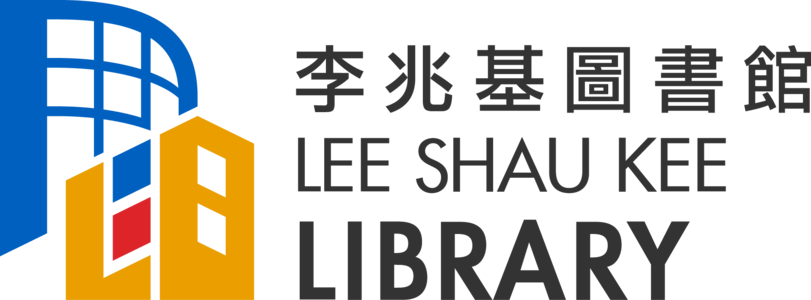10-11 December 2007
The Why of Information Commons
Harriette HEMMASI, University Librarian, Brown University, USA
ABSTRACT
In this era of unprecedented access to information, knowledge is still hard to find. No one understands this better than librarians and academicians. Regardless of the destination, the road to knowledge can be circuitous and uncertain. Technological advances and the resulting new models of teaching and learning have reinforced the fact that knowledge is as much about process as product. In response, librarians have expended enormous and at times literally super-human efforts to transform ourselves and our environments in order to anticipate, encourage, engage in, and support all aspects of the process-to-product continuum. Hence, we find the no longer un-common emergence of library information commons or lately called learning commons.
This presentation focuses on reasons why informations commons have evolved as an extension of today’s academy, how the commons is changing, and what we might expect in new library environments.
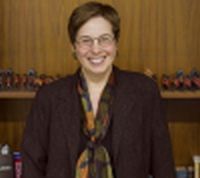
Harriette Hemmasi is the Joukowsky Family University Librarian at Brown, where she has oversight for the University’s library system and provides leadership in the delivery and integration of information resources and new technologies into the campus’ teaching, learning, and research environment. Since coming to Brown in the fall of 2005 Hemmasi’s primary objectives have been to translate the University’s goals and directions, especially those outlined in the Plan for Academic Enrichment, into actions for the Library; to build bridges between digital library initiatives and the broader set of campus technologies; and to establish the Library and its staff as active partners in the University’s academic mission. Currently, Hemmasi is overseeing a $35 million capital campaign to improve Library facilities, services, and collections. The Brown University Library system, employing 160 staff and housing more than 3.5 million volumes, is comprised of the John D. Rockefeller Jr. Library, the John Hay Library, the Sciences Library, the Orwig Music Library, the Art Slide Library, the Library Collections Annex, and the Annmary Brown Memorial. The Library’s resources grow each year by more than 100,000 analog and digital items and the Library delivers an increasingly wide array of vital services to students and faculty across the Brown campus.
Hemmasi came to Brown from Indiana University, Bloomington, where she served as Executive Associate Dean of Libraries. She was previously the Interim Associate University Librarian for Technical and Automated Services at Rutgers University (1998-2000) and music librarian at Rutgers (1989-1998).
Hemmasi received her master’s in library and information science from the University of California-Berkeley, a master’s in music from Indiana University, and a bachelor’s in music from Baylor University. She lived in Iran and taught music at Shiraz University from 1971-80.
The Evolving Commons Concept: Information-, Learning-, Library- and Research-Commons
Donald Russell BAILEY, Providence College, USA
ABSTRACT
The Commons concept, developed in the early 1990’s, has evolved over time, taking different shapes and involving different resources and services as it has evolved, including the Information Commons, the Learning Commons, the Library Commons and the Research Commons. There are numerous similarities among the various iterations of the Commons and some clear differences.
This presentation describes the basic foci and components of the Commons, found in most all iterations.
The presentation then delineates and describes the variations among the different types of Commons as they move from library-centric and tactical initiatives to institution-wide and strategic.
The Information-, Learning- and Library-Commons are designed primarily with students (mostly undergraduate) in mind. The Research Commons is designed with upper-level graduate students, faculty and researchers in minds.
Examples of each type of Commons will be provided, as well as links to collections of Commons implementations, resources and bibliographies.
 Dr. D. Russell Bailey is currently Library Director at Providence College. He formerly served as Associate University Librarian for Information Commons, University of North Carolina, Charlotte. Dr. Bailey is a contributing author to The Information Commons Handbook (October, 2006). He is also co-author of the forthcoming Information Commons Case Studies (Spring, 2008) and co-authored (with Barbara Tierney) “Information Commons Redux…” JAL, 2003.
Dr. D. Russell Bailey is currently Library Director at Providence College. He formerly served as Associate University Librarian for Information Commons, University of North Carolina, Charlotte. Dr. Bailey is a contributing author to The Information Commons Handbook (October, 2006). He is also co-author of the forthcoming Information Commons Case Studies (Spring, 2008) and co-authored (with Barbara Tierney) “Information Commons Redux…” JAL, 2003.
Dr. Bailey served as convener and moderator of Information Commons and Learning Commons panels and workshops for ACRL/ALA 2003-2006.
He gave a keynote presentation on the Commons at INFORUM 2005, Prague, The Czech Republic and another at INFORUM 2007. He was also keynote speaker at the recent Uncommon Commons symposium.
For further information on his publications, other professional activities, and his academic background, please see his profile at Providence College.
The Auchmuty Information Common: Implementation and Success at the University of Newcastle
Greg ANDERSON and Alison RIGBY, University of Newcastle, Australia
ABSTRACT
In 2004, the University of Newcastle implemented an Information Common to provide a learning environment which provided access to software, infrastructure and scholarly information resources on a 24 hour basis. The Auchmuty Information Common (AIC) is now in its third year of operation and has been an overwhelming success. It is a vibrant, informal learning space, and is recognised by students as being one of the best places on campus. Key success factors include the Service Delivery Model, Rover Recruitment, the Learning environment, design and atmosphere. The success of the information common is supported by client feedback including bi-annual Rodski Library survey, the AIC blog, feedback and suggestions. The Auchmuty Information Common Service Model was used as the basis for the new Student Service Hubs across three campuses of the University. Following the success of the AIC a new Information Common has been opened in the City Precinct Campus.
This paper outlines the project planning required to create the new facility, examines the success factors which have contributed to the continued growth of the information common and provides an operational snapshot of the information common in 2007.
ABOUT THE SPEAKERS
Greg Anderson is the University Librarian at the University of Newcastle. Greg has over 25 years experience in academic libraries and was the Project Manager for the University of Newcastle’s Information Common in 2003. It included collaborative work space and a converged service desk for library and IT services. Greg co-authored a Victorian Association of Library Automation (VALA) conference paper on the Information Common in 2006. He recently extended the Student Rover model in other campus service areas including IT and Student Hub Services. In 2007 Greg was awarded a Vice-Chancellor’s Citation for Outstanding Contributions to Student Learning.
With over 15 years of academic and reference library experience, Alison is Associate Librarian Client Services at the University of Newcastle. She was involved in the convergence of IT and Library Services in 1997 and developed the Student Rover Model for the Auchmuty Information Common. In 2006 she was nominated for the Vice Chancellors Award for Excellence for her role with the Common. In 2007 Alison was awarded a Vice-Chancellor’s Citation for Outstanding Contributions to Student Learning.
Learning at the Centre: Re-socialising the University through Innovative Design of Flexible Learning Space
Tom FINNIGAN, David DONALD and Iain WALLACE, Glasgow Caledonian University, UK
ABSTRACT
Glasgow Caledonian University (UK), is proud of its social mission, community engagement and accessible learner-centred innovative approach to education.
The Saltire Centre, opened in January 2006, is its multi-award winning learning centre. Widely acknowledged as a paradigm of successful learning space design, it is a benchmark for educators and planners from the UK and internationally. It is one of the most ambitious and innovative learning environments in the UK, offering easy access to a range of physical and virtual services in a single location.
This paper will share the experience of designing and implementing an environment to support effective learning, teaching, collaboration and research. It will consider the evolution of the Saltire Centre as a Learning Commons for the 21st century, integrating a library with a full range of learner support services. The paper will go on to speculate on how such physical spaces may be used in parallel with emerging digital learning environments.
The paper will assess the impact of learning space design on scholarly communication and personalised learning in the University, investigating how the Saltire Centre has become a focus for social interaction and collaboration for both members of the University and the people of Glasgow. The paper will argue that creating Information Commons such as the Saltire Centre will be essential to 21st century community, democracy and citizenship.
ABOUT THE SPEAKERS
 Tom Finnigan is the Director of Learner Support and is responsible for the operation of the multi-award winning Saltire Centre at Glasgow Caledonian University.
Tom Finnigan is the Director of Learner Support and is responsible for the operation of the multi-award winning Saltire Centre at Glasgow Caledonian University.
The Saltire Centre is the social heart of the campus, a place where students meet and converse as well as study. The design of the Centre and the way in which it is administered recognise the social origins of learning and the need for interaction between learners on different levels and in different forms. It is also a self-regulating environment, which places discussion on an equal footing with solitary learning – it is the policy of the University to give students responsibility over their learning environment as well as over the way in which they learn.
As Director of Learner Support, Tom is also responsible for delivering all services to students in an integrated one-stop-shop model of service delivery within the Saltire centre. He is a member of the Senior Management Team of the University and also represents the University on a number of United Kingdom national committees and organisations.
Tom was previously Director of the Centre for Teaching and Learning at the University of Paisley. Prior to that he was a senior lecturer in Education at Craigie College of Education.
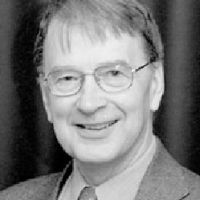 David Donald is Director of Spoken Word Services, based in Learner Support at Glasgow Caledonian University (GCU). He is a political scientist with extensive interests in (and experience of) information technologies. David is a graduate of the University of Strathclyde (BA (Econ)) and the University of Glasgow (Diploma in Education). From 1996 to 2002 he was co-director of ‘Making Connections’, a disability access to IT project based at GCU which developed access solutions for a wide range of voluntary associations. From 1996 to 2000 he was elected to the Executive of the Information Technology section of the American Political Science Association.
David Donald is Director of Spoken Word Services, based in Learner Support at Glasgow Caledonian University (GCU). He is a political scientist with extensive interests in (and experience of) information technologies. David is a graduate of the University of Strathclyde (BA (Econ)) and the University of Glasgow (Diploma in Education). From 1996 to 2002 he was co-director of ‘Making Connections’, a disability access to IT project based at GCU which developed access solutions for a wide range of voluntary associations. From 1996 to 2000 he was elected to the Executive of the Information Technology section of the American Political Science Association.
Spoken Word Services is based around the Spoken Word project, one of four in the JISC / NSF initiative Digital Libraries in the Classroom. It is a partnership of, in the UK, Glasgow Caledonian University (SALTIRE Learning Centre User Support services) and the BBC Future Media and Technology) and, in the USA, Michigan State (MATRIX) and Northwestern (OYEZ and Academic Technologies). The project is ongoing and runs from 2003 to 2008.
Glasgow Caledonian has a unique deposit agreement with the BBC which has enabled it to pilot serving several hundred ‘spoken word’ programmes (mostly radio but some video) from its digital repository to a range of universities in Europe and the USA. Materials are selected by scholars and can then be searched, collated and annotated from a rich front end environment incorporating meta-linking across records, dynamic RSS, Atom and Podcast feeds, integration with external web services such as Google Scholar and Wikipedia.
David has overall management responsibility for the Spoken Word project at GCU and related projects. He directs and advises on the University’s participation in a number of on-going projects related to digital scholarly communications.
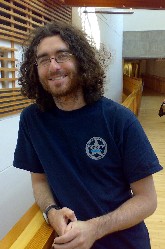 Iain Wallace is Digital Services Development Librarian for Spoken Word Services in Learner Support, based in the Library within the multi-award winning Saltire Centre, at Glasgow Caledonian University.
Iain Wallace is Digital Services Development Librarian for Spoken Word Services in Learner Support, based in the Library within the multi-award winning Saltire Centre, at Glasgow Caledonian University.
Spoken Word Services is centred around the Spoken Word project, one of four in the JISC / NSF Digital Libraries in the Classroom Programme. It is a partnership of, in the UK, Glasgow Caledonian University and the BBC (Future Media and Technology) and, in the USA, Michigan State (MATRIX) and Northwestern (OYEZ and Academic Technologies). The project is ongoing and runs from 2003 to 2008.
The Spoken Word team maintain and develop a repository of several hundred hours of digital audio and video resources for the educational community. These resources are sourced primarily, though not exclusively, from the BBC Television and Radio Archive.
Iain has day to day management responsibility for the Spoken Word project at GCU and related projects. He is involved in a number of ongoing University development projects related to digital scholarly communication.
Iain has previously worked for the Arts and Humanities Data Service and for the ADAM Service, now made available as part of INTUTE.
Establishing and Exploring Service Values by Assessment: The Case at HKUST Library
Gabrielle WONG, The Hong Kong University of Science and Technology, HK
ABSTRACT
With special funding from the HKUST Vice President for Academic Affairs Office, the Library set up an Information Commons (IC) in 2006. This was a new model for delivering services to our students, staff, administration, and even to the Library itself. The model offered great potential for facilitating teaching, enhancing the learning experience for students, and hence contributing to students’ learning outcomes. From the start, we realised that its success would lie in vigourous evaluation programs.
In its first year of operating the IC, the Library monitored monthly usage to constantly monitor use patterns and users’ behaviour. Then, 10 months after launching the service, we conducted a user satisfaction survey. The monthly usage figures and survey data helped to understand users’ needs, to identify strengths and weaknesses of the service, and to set direction for future development.
This presentation describes how the HKUST Library uses assessment to constantly evaluate and improve the effectiveness of the IC.
Gabrielle Wong has been the Information Commons coordinator at the HKUST Library since the IC opened in 2006. In this capacity, she oversees the administration and operation of this service facility, ranging from service delivery, assessment, staff training and supervision, to liaisons among various units in the Library.
She joined the HKUST Library in 1998 as a reference librarian. Besides her involvement at the IC, she is also the coordinator for the HKUST Institutional Repository, a subject librarian for physics and mathematics, and participates in the design and content of the Library website. In 2004, she led a survey on assessing the impact of the Library’s instruction program; the result of which was reported in a conference and subsequently published in Journal of Academic Librarianship.
Gabrielle obtained her B.Sc. degree in Physics from the University of Hong Kong, and the MLIS from McGill University, Montreal, Canada. She started her librarian career at the University of Hong Kong Libraries before joining HKUST.
Measuring the Success of Library and Learning Commons
Janette BURKE, Monash University, Australia
ABSTRACT
Monash University Library undertook a gap analysis of its eight branch libraries in 2003 and as a result commissioned a Facilities Master Plan. The Hargrave-Andrew Library was the first of the libraries to be refurbished according to the Facilities Master Plan framework and principles. The Berwick Library and Learning Commons was the second library to apply the Plan and was the first of its kind on a Monash campus that seamlessly combined library services and information technology services and resources with a contemporary, user-friendly learning and teaching environment. Monash University South African and Monash Malaysia have also applied the Plan to brand new Library and Learning Commons buildings. All of the libraries are more responsive to student’s learning styles and needs. They provide flexible, open, technologically rich environments providing individual and group study spaces as well as informal seating. The building layouts are intended to encourage engagement with learning, using contemporary furniture and clear communication channels. A cultural layer has been included in the buildings to inspire students to reflect on the work they are doing in their own discipline, and traditional barriers between staff and students have been minimised or removed.
So how did we know that the Facilities Master Plan works?
A review was conducted during June and July 2006 to determine the success of the application of the Library’s Facilities Master Plan in the Hargrave-Andrew Library. A review was also undertaken at the Berwick Library and Learning Commons in August of the same year. Feedback on the refurbished libraries was extremely positive with very minor adjustments to furniture and signage required. Most of those surveyed believed libraries to be easily navigable and user-friendly and those who had used the facilities in the past found it a vast improvement on how the library and its resources were presented before the refurbishment. Of particular interest was the success of including Information Technology Services computer laboratories into the Berwick Library and Learning Commons space.
Janette Burke is the Director, Central Services for the Monash University Library. Janette has been at Monash University for five years and oversees information technology, finance, human resources, communications and facilities management. Janette also manages the library’s relationships with the university’s international community, affiliates and partner organisations. One of her most exciting briefs to date has been the refurbishment of the Berwick Library to create a Library and Learning Commons and the design of the Monash South Africa and Monash Malaysia Library and Learning Commons.
Janette has held a variety of positions and worked in numerous universities, including the University of Wollongong Library from 1989 to 1994, and again in 1999 to 2001 during which time she held several positions, including Systems Manager, Acting Technical Services Coordinator and Project Officer. Janette has also been a Faculty Librarian at Wollongong, and at the University of Central Queensland, and she has worked at the University of Ballarat Library as a Systems Consultant and Acquisitions Librarian. In 1994 to 1999 Janette worked at Monash University as the Executive Assistant to the University Librarian, and was Acting Document Delivery Librarian.
Developing a Sustainable Staffing Model for the Learning Commons: The Victoria University Experience
Philip G KENT and Belinda MCLENNAN, Victoria University, Australia
ABSTRACT
Considerable attention has been given to physical design elements of the Learning Commons as many universities seek to create more student-centred environments. However less attention has been paid to the development of sustainable staffing models that underpin the Learning Commons. The paper outlines the planning, implementation and evaluation processes employed in developing a service and staffing model at Victoria University (VU).
A multi-tiered service model was developed involving the three collaboration partners: Library, Teaching & Learning Support and Information Technology Services. The paper describes the roles and capabilities that each group brings to the shared environment of the Learning Commons in a multi-campus institution and to the tiers of learning support.
The VU experience is differentiated by a strong focus on learning. To improve engagement with students and to capitalise on peer mentoring theory, a Student Rover program was developed and piloted. Student Rovers provide first-tier support to students in the Learning Commons environment. They also assist their peers through referrals to more experienced discipline specialists as well as contributing to a culture of learning.
The paper highlights the centrality of learner-centred approaches in the evolution of a Learning Commons philosophy to underpin the mission of an innovative and dynamic University.
ABOUT THE SPEAKERS
Philip G Kent
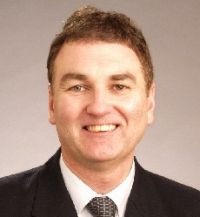 Philip joined Victoria University in April 2006. He came to the University with 25 years of experience in higher education and research organisations.
Philip joined Victoria University in April 2006. He came to the University with 25 years of experience in higher education and research organisations.
His early career was in university, technical and further education libraries in Queensland. For the following 20 years Philip worked in a variety of library, IT, knowledge and information management, risk and audit roles at CSIRO, Australia’s national science agency. A career highlight was the building of a large, onsite digital library of full text science literature.
Philip holds an MBA from the Mt Eliza Business School now merged into the Melbourne Business School. He has presented papers at national and international forums, been an active member of many professional associations and published widely in a variety of disciplines.
In seeking to optimise Victoria University’s learning environment, the Library is a lead player in implementing integrated Learning Commons facilities at multiple campuses. This initiative will provide a major challenge for Philip and the University Library over the next few years.
Belinda McLennan
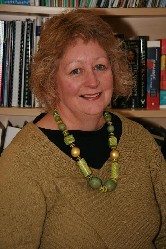 Belinda McLennan is the Pro Vice-Chancellor (Teaching and Learning) at Victoria University, Melbourne, Australia – a multi-sector University. Her position has overall University responsibility for all aspects of teaching and learning including the building and improving of learning, teaching, career development and work experiences for students, as well as professional and career development for all staff of Victoria University.
Belinda McLennan is the Pro Vice-Chancellor (Teaching and Learning) at Victoria University, Melbourne, Australia – a multi-sector University. Her position has overall University responsibility for all aspects of teaching and learning including the building and improving of learning, teaching, career development and work experiences for students, as well as professional and career development for all staff of Victoria University.
Belinda has worked in vocational, further and higher education for over 25 years. She is currently undertaking Doctor of Professional Studies (Work-based Learning) through Middlesex University.
The Information Commons at the University of Calgary: Service in Transition
Susan BEATTY, University of Calgary, Canada
ABSTRACT
The Information Commons at the University of Calgary Library (1999) is a facility which provides both reference and technical support. Its successful service model is based on collaboration between the Library and University Information Technologies. The University is in the midst of planning for a new Library (Taylor Family Digital Library) which will house additional collaborative partners. The new Learning Commons will have a broader suite of services. The Learning Commons service model will build on the best of the Information Commons and bring new features which will further support learning and collaboration. This paper will focus on the current operations of the Commons (issues and opportunities), the features (physical and virtual) used to support learning and collaboration, and the lessons learned, as well as identify and discuss the current process of transition. Using the lessons learned, the paper will also point to possible future models of service in the new Learning Commons.
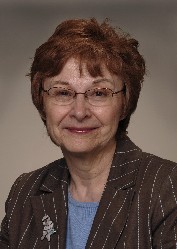 Susan Beatty is the Head, Information Commons, University of Calgary, Canada. She has extensive experience in managing excellent customer service in both academic and public libraries. Her main responsibility is coordinating the delivery of reference service and technical support in the Information Commons. It is her belief that the best service within Information Commons is provided through collaboration with other academic units. Susan has presented at various international conferences in New Zealand, United States, England and Scotland. In addition to her library science degree she has a Masters of Continuing Education with a specialization in workplace learning.
Susan Beatty is the Head, Information Commons, University of Calgary, Canada. She has extensive experience in managing excellent customer service in both academic and public libraries. Her main responsibility is coordinating the delivery of reference service and technical support in the Information Commons. It is her belief that the best service within Information Commons is provided through collaboration with other academic units. Susan has presented at various international conferences in New Zealand, United States, England and Scotland. In addition to her library science degree she has a Masters of Continuing Education with a specialization in workplace learning.
Building Community at the Community College: The Role of the Learning Commons
Michael B. REINER, Florida Community College at Jacksonville, USA
ABSTRACT
The information and learning commons serves an important role at the community college, a distinctly American institution of higher education. Community colleges offer two-year Associates degrees in technical fields that are career-oriented or undergraduate programs that are transferable to universities for baccalaureates. Most community colleges are nonresidential, with students commuting during the day between class, work, and home. Juggling the demands of employment, family, and school often makes community college life stressful and disjointed.
The information and learning commons should be the heart of campus where learning occurs with the aid of technology so as to integrate disparate resources, such as the library collection, computer labs, tutoring center, and instructional media. Unlike the traditional library, the commons attempts to facilitation human interaction and dialogue to promote learning within a social context.
Given the transient campus experience of community college students, the commons provides a gathering place to study, do research, get tutoring help, check email, surf the web, have a cup of coffee, meet with classmates, chat with friends, dialogue with faculty, read for pleasure, and relax between classes, thereby connecting students to a community of learners and strengthening the “community” in community college.
ABOUT THE SPEAKER
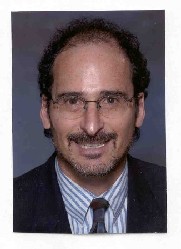 Dr. Michael B. Reiner is the Executive Dean at the Kent Campus of Florida Community College in Jacksonville, U.S.A. He has been an administrator in academic affairs in community colleges for the past eight years. Before that, he was a professor of psychology for seventeen years at colleges and universities in the United States. While at Kennesaw State University in Atlanta, he was recognized for his accomplishments with the Distinguished Teaching Award and was named University System of Georgia Board of Regents Distinguished Professor for Teaching and Learning. At Florida Community College, he is responsible for the redesign of traditional libraries into learning commons so as to promote teaching and learning in the 21st century. He has traveled extensively in Europe and Central/South America, as well as to mainland China, Taiwan, Thailand, Malaysia, and Singapore. This is his first trip to Hong Kong.
Dr. Michael B. Reiner is the Executive Dean at the Kent Campus of Florida Community College in Jacksonville, U.S.A. He has been an administrator in academic affairs in community colleges for the past eight years. Before that, he was a professor of psychology for seventeen years at colleges and universities in the United States. While at Kennesaw State University in Atlanta, he was recognized for his accomplishments with the Distinguished Teaching Award and was named University System of Georgia Board of Regents Distinguished Professor for Teaching and Learning. At Florida Community College, he is responsible for the redesign of traditional libraries into learning commons so as to promote teaching and learning in the 21st century. He has traveled extensively in Europe and Central/South America, as well as to mainland China, Taiwan, Thailand, Malaysia, and Singapore. This is his first trip to Hong Kong.
Establishing the Learning Commons – The Experience of the Run Run Shaw Library, City University of Hong Kong
Hsianghoo Steve CHING and Teresa TO, City University of Hong Kong, HK
ABSTRACT
“Learning Commons” has become a popular concept when today’s libraries consider reorganizing their spatial layouts. The Run Run Shaw Library of the City University of Hong Kong (CityU Library) has taken the adventurous challenge to be one of the first libraries in Hong Kong to establish a Learning Commons when she gets the chance to renovate her 17-year old building. With a substantial period of study of the major rationale and concepts behind ‘Learning Commons’ as well as taking references from other libraries outside Hong Kong, the CityU Library began the Library Renovation project in 2006/07.
Learning Commons is situational and thus has different meanings when it is applied to different environment. This presentation will give a detailed description of the Renovation Project of the CityU Library including the concepts of Learning Commons adopted, the strategic study and planning of the Library space, the communication with users and stakeholders, the preparation works, the actual construction as well as the difficulties encountered. It will also present the result, that is, the benefits that this Learning Commons has brought to the CityU staff and students.
ABOUT THE SPEAKERS
Hsianghoo Steve Ching is University Librarian at City University of Hong Kong. He is also the Adjunct Professor of Department of Economics and Finance. Before accepting the appointment at CityU in 2004, he was Director of University Libraries and Professor of Business School at Feng Chia University in Taiwan. He received both his MBA and Ph.D. from the University of Nebraska-Lincoln, USA. His recent research focus is on the academic library consortia management and administration, strategic management for e-learning and digital publishing, and economic analysis of library services.
In 2001, he was instrumental in foreseeing the completion of the total renovation of the old library into a state-of-the-art building, showcasing electronic resources and equipment along with traditional collections. In 2003, he was greatly involved in the formation and establishment of the Chinese Information Literacy Association. The Association helps facilitate the best practices of information literacy by integrating the curriculum from regional to national communities and to all other levels of the educational system as well. He also served as the Chairperson for the National Committee of Distance Education Evaluation, nominated by the Minister of Education in Taiwan. In April 2001, he initiated to form TEBNET, Taiwan eBook Network, the first ebook consortium in Taiwan. In December 2005, he founded and established Super eBook Consortium – Cicada with the aim of enhancing the English-language collection among 48 university libraries in Hong Kong and Taiwan. In terms of the number of libraries and the number of titles, the Consortium is one of the largest eBook consortia in the world. The Consortium successfully acquired over 50,000 volumes of professional and academic English-language ebooks in various disciplines in a cost-effective coordinated acquisition model.
Teresa To is the Senior Assistant Librarian at Run Run Shaw Library, City University of Hong Kong (CityU). Her current responsibility is to manage the Technical Services Unit and oversee the Library’s spatial reorganization project. Prior to joining CityU, her career in libraries included positions at the Whitlam Library, Sydney, Australia and some other special libraries in Australia and Hong Kong. She joined the Chinese University of Hong Kong (CUHK) in 1994 to set up the Architecture Library which was the first and only Academic Architecture Library in Hong Kong. She had then become the Branch Librarian of the New Asia College Library since 2001. During her term at CUHK, Teresa was instrumental in initiating some subject-based databases. She had also managed a number of library renovation projects including the Additions, Alteration and Improvement (AA&I) work funded by UGC. Teresa received her Bachelor of Applied Science in Information from the University of Technology Sydney and her Master of Librarianship from the University of New South Wales.
The Information Commons Group at The University of Auckland: Models of Co-location, Collaboration, Integration and Innovation
Hester MOUNTIFIELD, The University of Auckland, New Zealand
ABSTRACT
This paper will present a case study of the Information Commons Group at The University of Auckland: the large purpose-built Kate Edger Information Commons (2003) on the City Campus, and smaller Grafton Information Commons (2004) on the Medical Campus and the library-based Epsom Information Commons (2006) on the Education Campus. The group comprises three models of co-location, collaboration, integration and innovation successfully operating within the same IT, service and staffing infrastructure. These student-centred learning facilities provide proactive integrated learning support in a collaborative, interdisciplinary physical and virtual learning environment. The initial strategic and operational planning undertaken to establish and manage the Information Commons will be covered. The ongoing strategic focus of the Group is to ensure that the service model continues to evolve to ensure excellent frontline services as well as the further blending of learning support services to accommodate changes in learning, technology and student needs. Experiences and lessons learnt from implementation and operational successes and challenges leading to the reengineering of the initial service model at the end of 2006 will be outlined.
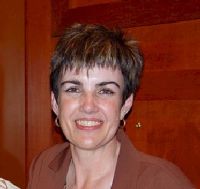 Hester Mountifield is Assistant University Librarian (Information Commons & Learning Services) at The University of Auckland Library in New Zealand. She has been with the University Library in various roles since 1996 and prior to that worked in the university and secondary school sector in South Africa. Her current role includes the management of the University Library’s Information Commons Group and the development and coordination of information literacy and integrated learning support initiatives in collaboration with institutional partners. She is interested in the pedagogical and learning support issues raised by the blending of e-learning technologies with digital libraries, resources and services, the educational design role of librarians and the learning support and eLiteracy needs of the Net Generation. She holds a Masters degree in Library and Information Science and a Postgraduate Diploma in Higher Education. Her publications include conference papers and articles on the Information Commons and eLiteracy. She has also contributed chapters to books on these topics.
Hester Mountifield is Assistant University Librarian (Information Commons & Learning Services) at The University of Auckland Library in New Zealand. She has been with the University Library in various roles since 1996 and prior to that worked in the university and secondary school sector in South Africa. Her current role includes the management of the University Library’s Information Commons Group and the development and coordination of information literacy and integrated learning support initiatives in collaboration with institutional partners. She is interested in the pedagogical and learning support issues raised by the blending of e-learning technologies with digital libraries, resources and services, the educational design role of librarians and the learning support and eLiteracy needs of the Net Generation. She holds a Masters degree in Library and Information Science and a Postgraduate Diploma in Higher Education. Her publications include conference papers and articles on the Information Commons and eLiteracy. She has also contributed chapters to books on these topics.
From KNC to LC: Evolving Learning Space at the Main Library, The University of Hong Kong
Y.C. WAN and Antonia YIU, The University of Hong Kong, HK
ABSTRACT
When the Main Library New Wing was open in 1991, the ground floor became an important focal point for study and learning. It has the largest cluster of computers for searching the expanding e-resources, and attracted a lot of student activities there. In 1998, the area was transformed to the Knowledge Navigation Centre (KNC) offering a more congenial environment for collaborative learning. Its one-stop shop concept allows users to find information and produce their knowledge products at the same place. Over the past decade, there have been minor modifications to the KNC in alignment with changing user needs. This presentation will talk about the development of the KNC and will also project into its future development to a Learning Commons that can further strengthen its support to the latest learning and research needs of our users.
ABOUT THE SPEAKERS
Dr Wan is Leader of the Main Library Services Team at the University of Hong Kong Libraries. His major responsibility is to provide quality service at the Main Library. He is now leading a team of library colleagues to plan setting up a Learning Commons on Ground Floor, Main Library. Dr Wan also has a keen interest in Hong Kong studies, particularly the history of libraries in Hong Kong.
Antonia is the Information Literacy Coordinator at the University of Hong Kong Libraries. Her specialty is in user education and reference service. Besides offering face-to-face and online instruction, Antonia also coordinates the library-wide instruction programmes offered in the Main Library, branch libraries and the subject librarians.
The Library Chameleon: Changing Spaces for 21st Century Learning
Trish WALKER and Liz WALLER, Leeds University, UK
ABSTRACT
Centres for Excellence in Teaching and Learning (CETLs) were created to promote excellence in higher education learning and teaching. Capital funds were available to enable institutions to invest in, amongst other things, buildings to enhance learning in new and challenging ways. Assessment and Learning in Practice Settings (ALPS) is one such CETL aiming to promote and develop ways of inter-professional learning across 16 health and social care subjects in a collaboration of 5 Yorkshire universities.
Leeds University Library is one of the largest university libraries in the United Kingdom, with a stock of over 2.8 million volumes and 30,000 journals available to readers. The Library is seeking to re-interpret spaces in the light of 21st century pedagogy, technology and digital natives. It has had a unique opportunity to collaborate with ALPS in creating a pilot learning space in its Health Sciences Library. Work is ongoing to assess this space for learning to see whether it meets the expectations of students and how it has affected their work practices.
This paper will explore collaboration in the re-design of learning spaces between academic units, librarians and students. It will discuss the results of the pilot at Leeds University and suggest strategies for the future.
ABOUT THE SPEAKERS
Trish Walker
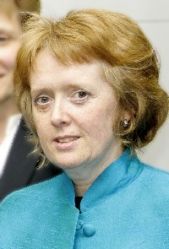 Trish Walker is Programme Manager for the Assessment & Learning in Practice Settings (ALPS) Centre for Excellence in Teaching & Learning (CETL), a collaborative programme between the University of Leeds, the University of Bradford, the University of Huddersfield, Leeds Metropolitan University and York St. John College. She has particular responsibility for ensuring that the five Yorkshire partner institutions work effectively together to ensure that students graduating from courses in health and social care are fully equipped to perform confidently and competently at the start of their professional careers.
Trish Walker is Programme Manager for the Assessment & Learning in Practice Settings (ALPS) Centre for Excellence in Teaching & Learning (CETL), a collaborative programme between the University of Leeds, the University of Bradford, the University of Huddersfield, Leeds Metropolitan University and York St. John College. She has particular responsibility for ensuring that the five Yorkshire partner institutions work effectively together to ensure that students graduating from courses in health and social care are fully equipped to perform confidently and competently at the start of their professional careers.
Previously Trish was Centre Manager at the Higher Education Academy Centre for Bioscience, a national programme to lead, support and inform the professional development and recognition of staff in higher education. The Centre provided support in the form of teaching resources including staff development workshops, publications and an e-journal.
Trish has a BA in French and an MBA with her dissertation based on student expectations and perceptions of an educational advice service.
Liz Waller
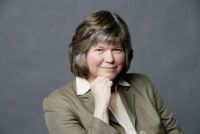 Liz Waller is Head of Public Service Strategy at Leeds University Library. She is a member of the senior management team in the Library with strategic responsibility for Customer Services, Library Marketing and Estates planning and development. Currently she is working on development plans to ensure the Library is offering learning spaces fit for 21st century pedagogy which are adaptable for future needs.
Liz Waller is Head of Public Service Strategy at Leeds University Library. She is a member of the senior management team in the Library with strategic responsibility for Customer Services, Library Marketing and Estates planning and development. Currently she is working on development plans to ensure the Library is offering learning spaces fit for 21st century pedagogy which are adaptable for future needs.
Liz has 20 years experience of working in Higher Education libraries in the UK and previously specialised in information literacy. She has a BA in English and an MA in Library and Information Science. She is a Fellow of the UK Higher Education Academy.
last modified 08 December 2016

